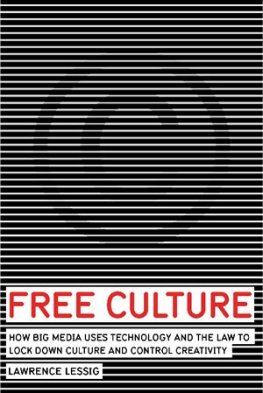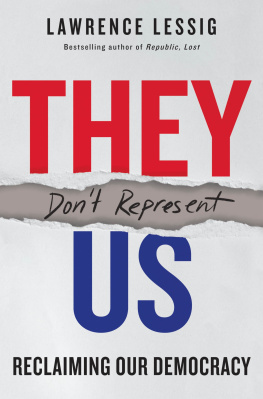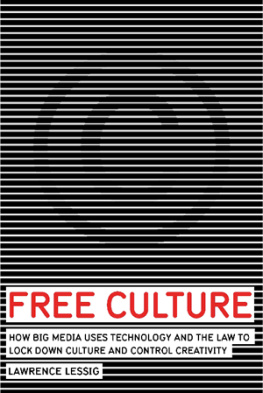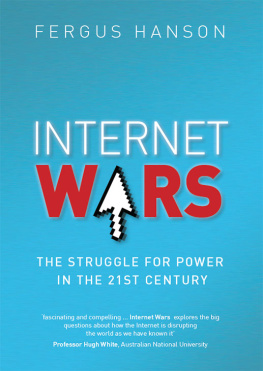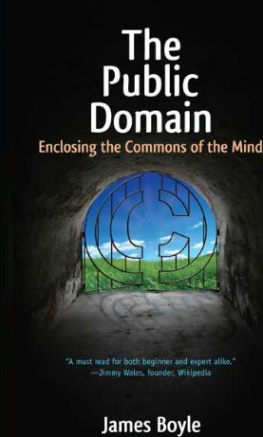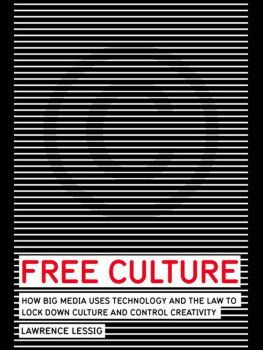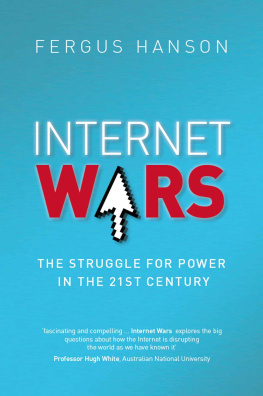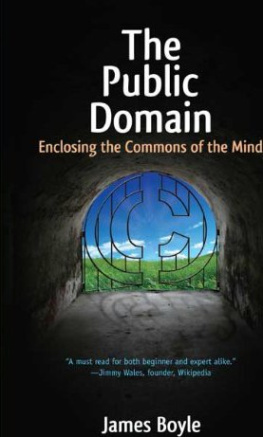The Future of Ideas
The Fate of the Commons In a Connected World
Lawrence Lessig
Table of Contents
This work is licensed under a Creative Commons Attribution-Noncommercial License (US/v3.0).
Noncommercial uses are thus permitted without any further permission from the copyright owner.
Permissions beyond the scope of this license are administered by Random House. Information on how to request permission may be found at:
http://www.randomhouse.com/about/ permissions.html
The book maybe downloaded in electronic form (freely) at:
http://the-future-of-ideas.com
For more permission about Creative Commons licenses, go to:
http://creativecommons.org
Lawrence Lessig
RANDOM HOUSE
New York
Copyright (c) 2001 Lawrence Lessig
All rights reserved under International and Pan-American Copyright Conventions. Published in the United States by Random House, Inc., New York, and simultaneously in Canada by Random House of Canada Limited, Toronto.
Random House and colophon are registered trademarks of Random House, Inc.
library of congress cataloging-in-publication data Lessig, Lawrence.
The future of ideas: the fate of the commons in a connected world / Lawrence Lessig.
p. cm.
Includes index.
ISBN 0-375-50578-4
1. Intellectual property. 2. Copyright and electronic data processing.
3. Internet-Law and legislation. 4. Information society. I. Title.
K1401.L47 2001 346.04'8'0285-dc21 2001031968
Random House website address: www.atrandom.com
Printed in the United States of America on acid-free paper
2 4 6 8 9 7 5 3
First Edition
Book design by Jo Anne Metsch
To Bettina,
my teacher
of the most important
lesson.
Preface
In 1999, in a book entitled The Control Revolution, journalist and legal scholar Andrew Shapiro described two futures that the Internet might take. The first was the familiar story of increased individual freedom, as the network gave us greater control over our lives, and over the institutions, including government, that regulate our lives. The second was a less familiar warning-of the rebirth of technologies of control, as institutions "disintermediated" by the Internet learned how to alter the network to reestablish their control.
Shapiro saw good and bad in both futures. Too much dis-intermediation, he warned, would interfere with collective governance; some balance was needed. But likewise, efforts to rearchitect the Net to reenable control threatened to undermine its potential for individual freedom and growth.
Shapiro did not predict which future would be ours. Indeed, his argument was that bits of each future were possible, and that we must choose a balance between them. His account was subtle, but optimistic. If there was a bias to the struggle, he, like most of us then, believed the bias would favor freedom.
This book picks up where Shapiro left off. Its message is neither subtle nor optimistic. In the chapters that follow, I argue that we are far enough along to see the future we have chosen. In that future, the counterrevolution prevails. The forces that the original Internet threatened to transform are well on their way to transforming the Internet. Through changes in the architecture that defined the original network, as well as changes in the legal environment within which that network lives, the future that promised great freedom and innovation will not be ours. The future that threatened the reemergence of almost perfect control will.
I don't mean the control of George Orwell's 1984. The struggle that I describe here is not between free speech and censorship, or between democracy and totalitarianism. The freedom that is my focus here is the creativity and innovation that marked the early Internet. This is the freedom that fueled the greatest technological revolution that our culture has seen since the Industrial Revolution. This is the freedom that promised a world of creativity different from the past.
This freedom has been lost. With scarcely anyone even noticing, the network that gave birth to the innovation of the 1990s has been remade from under us; the legal environment surrounding that network has been importantly changed, too. And the result of these two changes together will be an environment of innovation fundamentally different from what it was, or promised to be.
Or so it will be unless we do something now. Unless we learn something important about the source of that creativity and innovation, and then protect that source, the Internet will be changed.
With dot.busts all around, it is not difficult to argue that this is the winter of the Internet's life. The question for us is whether the spring will be as silent.
A BOOK like this does not emerge from a library. It has instead been written through hundreds of conversations over many years. I am a law professor, but my argument spans computer design to economics. It is no doubt foolish for anyone to try to pull together such a range of material, but I could never have dared to be so foolish without the patient tutoring of many different people. Among these, I am most grateful to my colleagues at the Electronic Frontier Foundation, including John Gilmore and John Perry Barlow; and the Center for Public Domain, especially Laurie Racine and Bob Young. Jeff Chester of the Center for Media Education and Mark Cooper of the Consumers Union taught me a great deal about media policy and the passion of this struggle. There is a long list of technical experts who have struggled to show me how the network works. Among these I am most grateful to Hal Abelson, Scott Bradner, Ben Edelman, Dewayne Hendricks, Joseph Reagle, David P. Reed, and Jerome Saltzer. Dewayne Hendricks and David P. Reed helped me understand spectrum and, more important, the potential spectrum offered. Peter Huber helped me understand telephone companies and the very different potential they offered.
I am grateful as well to an extraordinary collection of law professors, who have built in the field of cyberlaw an amazing community. James Boyle's book Shamans, Software, and Spleens was my first introduction to the issues that I address here; James Boyle the person has been a steady, invaluable guide since. Jack Balkin, Yochai Benkler, Mark Lemley, Jessica Litman, David Post, and Pam Samuelson have all taught me far more than I could return to them.
My work on this book began at Harvard Law School 's Berkman Center. The theme was born in the passionate rants of its extraordinary director, Charlie Nesson. Through our work as colleagues, and on the Microsoft case as well, Jonathan Zittrain helped me see how platforms matter. He has been a constant, if neglected, friend throughout the development of the argument here.
I am also especially grateful to the hundreds of readers of The Industry Standard who have reacted to the snippets of this book that I have woven into columns for that magazine. While the furor of many of those readers is sometimes hard to suffer, the insights and wisdom of many have been critical in re-forming the views I express here.
Finally, there is a collection of people who figure throughout the story of this book, but who were more central to its writing than the text might reveal. These are the figures who are truly fighting for a cause. Some of them are quite well known-Richard Stallman, for example. Others are well known among lawyers, at least-Dennis Karjala, Jessica Litman, Marc Rotenberg, Pam Samuelson. But others inspire more through their simple and quiet perseverance. Eric Eldred, whom you will meet in the course of these pages, is the best example of this type. These ideas would never have been put into words without the inspiration from people like him.


